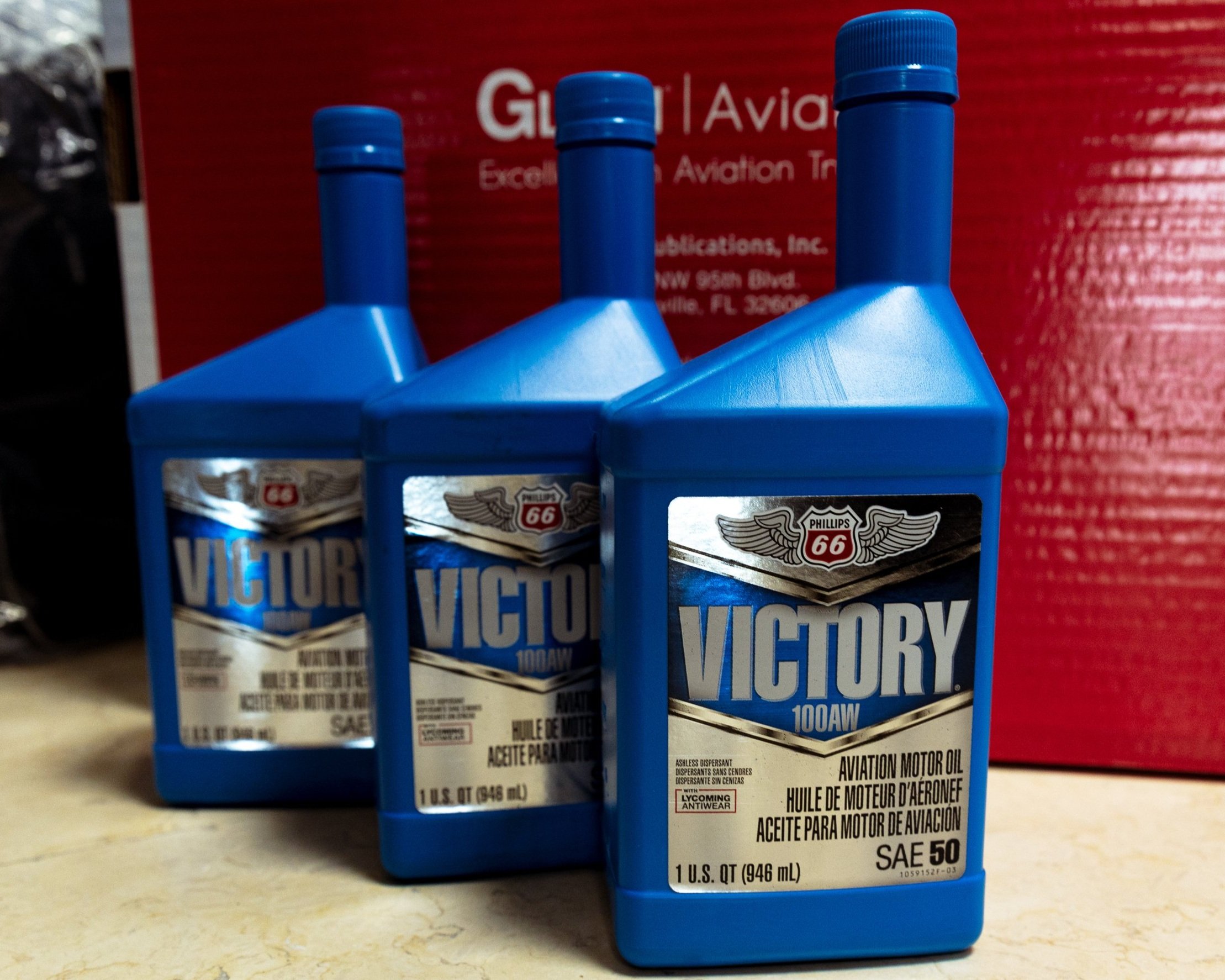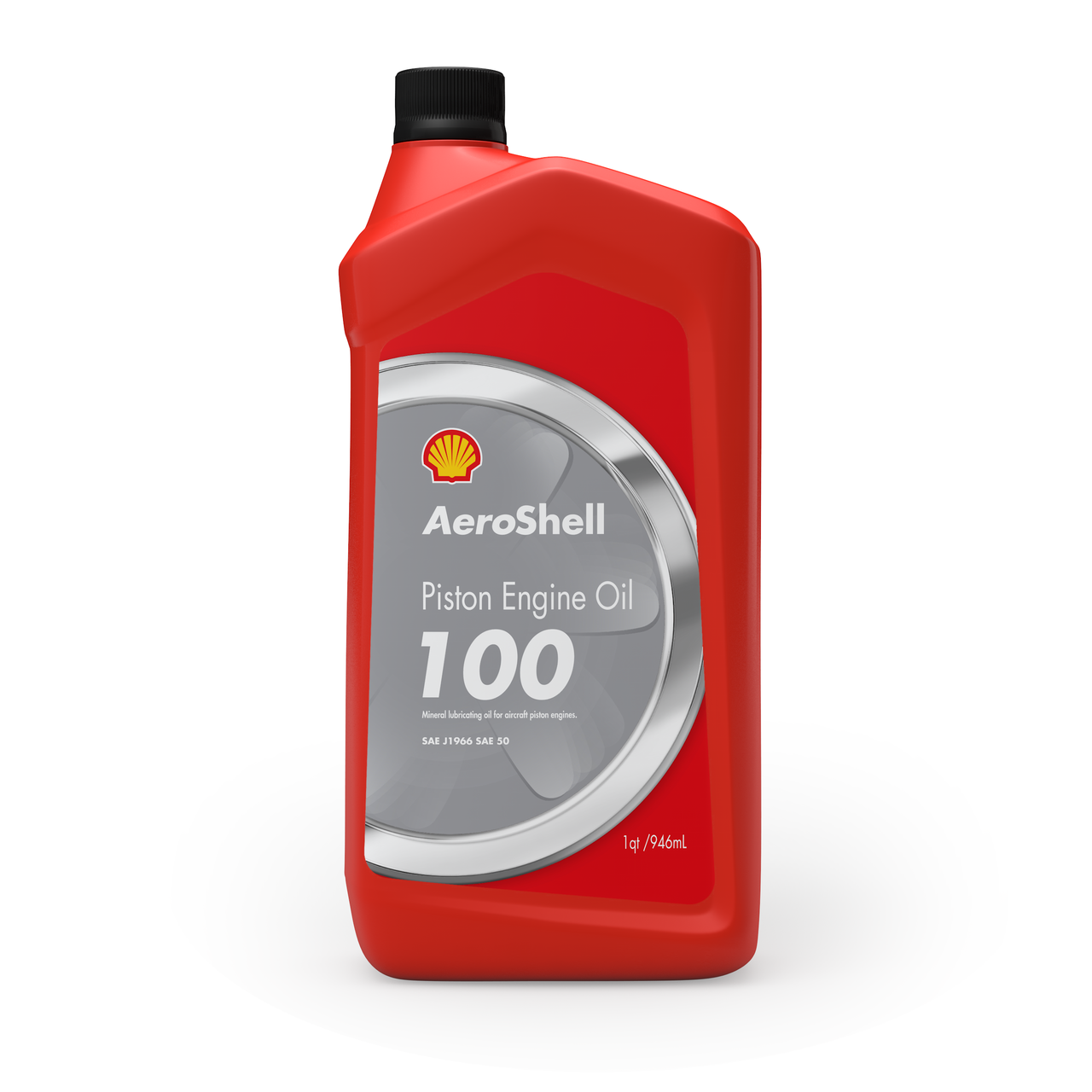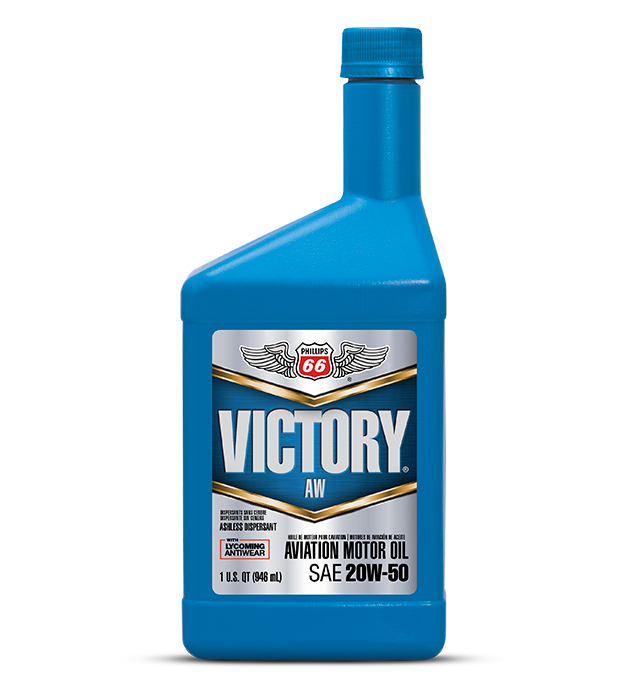
Phillips Victory 100AW with Lycoming Antiwear
Aviation oils are specially formulated lubricants that are used in aircraft engines and other systems. These oils are designed to operate at high temperatures and pressures and to protect against corrosion and wear. Some common types of aviation oils include mineral-based oils, synthetic oils, and ashless dispersant oils. Each type of oil has its own unique properties and is suitable for different applications. For example, mineral-based oils are suitable for older aircraft engines, while synthetic oils are better suited for modern engines. Ashless dispersant oils are designed to prevent the build-up of harmful deposits in the engine. It is important to use the correct type of oil for your aircraft to ensure that it operates safely and efficiently.
Different Viscosities
One important characteristic of aviation oils is their viscosity, which is a measure of the oil's resistance to flow. Oils with a higher viscosity are thicker and more resistant to flow, while oils with a lower viscosity are thinner and flow more easily. Different viscosity grades of aviation oils are available, which are designated by a number such as 10, 20, 30, etc. These numbers refer to the oil's viscosity at a specific temperature, typically 40°C or 100°C. For example, an aviation oil with a viscosity grade of 50 would have a viscosity of 50 centistokes (cSt) at 40°C or 100°C, depending on the specification.
The viscosity of aviation oils is important because it affects the oil's ability to lubricate and protect various engine and system components. Oils with a higher viscosity may provide better protection and lubrication at higher temperatures and loads, but they may also cause increased drag and reduce fuel efficiency. Oils with a lower viscosity may flow more easily and provide better fuel efficiency, but they may not provide as much protection and lubrication at higher temperatures and loads.
Different types of aviation oils are used for different purposes and in different aircraft systems. For example, some aviation oils are formulated for use in piston engines, while others are formulated for use in turbine engines. Some aviation oils are also formulated for specific types of aircraft, such as high-performance jets or helicopters. It is important to use the correct type of aviation oil for your specific aircraft and operating conditions to ensure proper performance and protection of your engine and systems.
Additives
Lycoming anti-wear additives are specialized additives used in some aviation oils to provide additional protection against wear and tear on engine and system components. These additives are specifically formulated for use in aircraft engines manufactured by Lycoming. They are designed to reduce wear and tear on engine components by forming a protective layer on the surface of these components, which helps to reduce friction and heat.
It is important to note that Lycoming anti-wear additives are specifically formulated for use in Lycoming engines, and may not provide the same level of protection or performance in engines from other manufacturers, such as Continental. If you have a Continental engine, you should use aviation oils and additives that are specifically formulated for use in Continental engines, rather than Lycoming anti-wear additives.
Phillips vs AeroShell

Phillips and Aeroshell are both brands of aviation oils and lubricants that are used in aircraft engines and other systems. Both brands offer a range of products with different viscosities, formulations, and performance characteristics. The choice of aviation oil or lubricant will depend on the specific needs of your aircraft and operating conditions, and it is important to use the correct type to ensure proper performance and protection of your engine and systems.
It is not necessarily the case that one brand is better than the other, as both Phillips and AeroShell offer high-quality aviation oils and lubricants that are formulated to meet specific performance and protection requirements. In some cases, mechanics may recommend one brand over the other based on their personal experience or preferences, but this does not necessarily mean that one brand is superior to the other.

As for the actual differences between the two brands, it may depend on the specific product being compared. Some aviation oils and lubricants from Phillips and Aeroshell may have different viscosities, formulations, or performance characteristics, which may make them more or less suitable for certain aircraft and operating conditions. In general, premium aviation oils and lubricants may offer additional performance and protection benefits, but it is important to carefully consider the specific needs of your aircraft and operating conditions before deciding if the premium is worth it.


.png?width=178&height=50&name=Aviator%20Zone%20Academy%20(5).png)
Submit a Comment